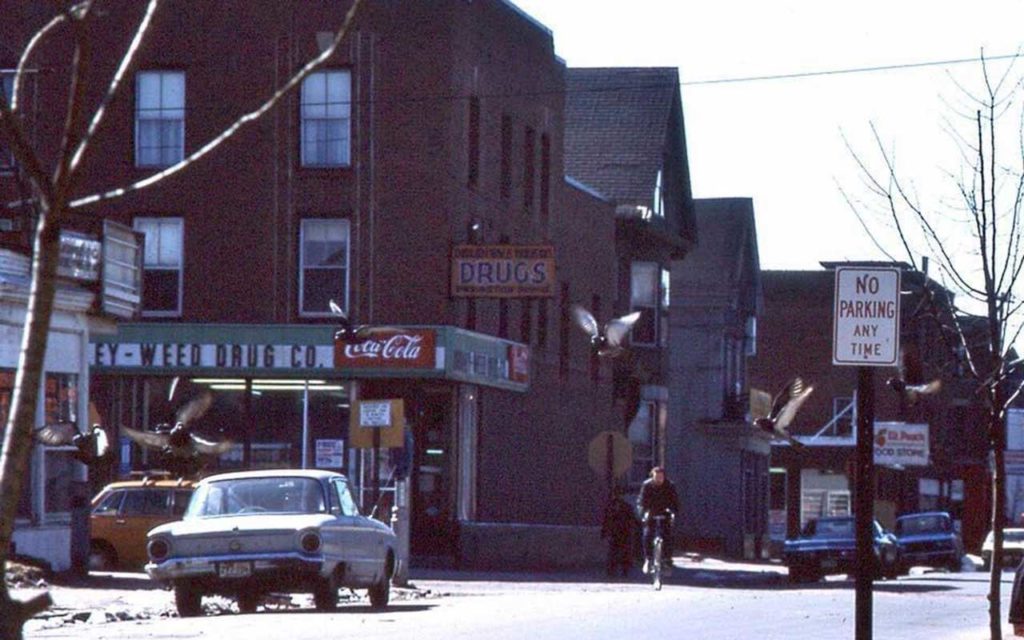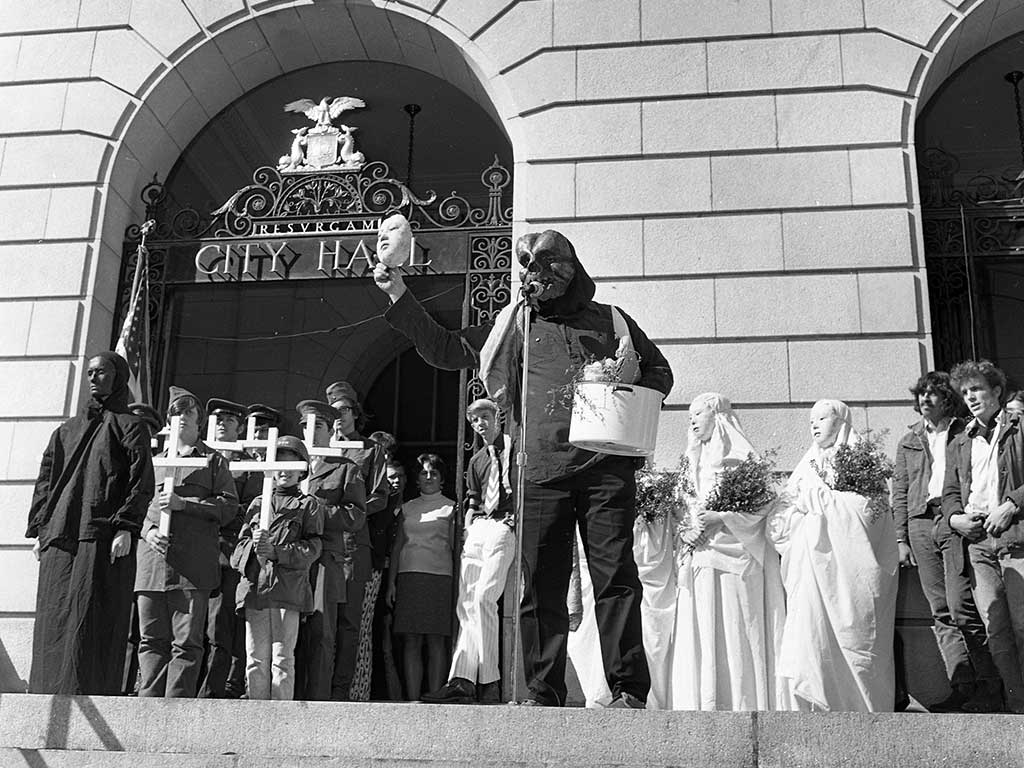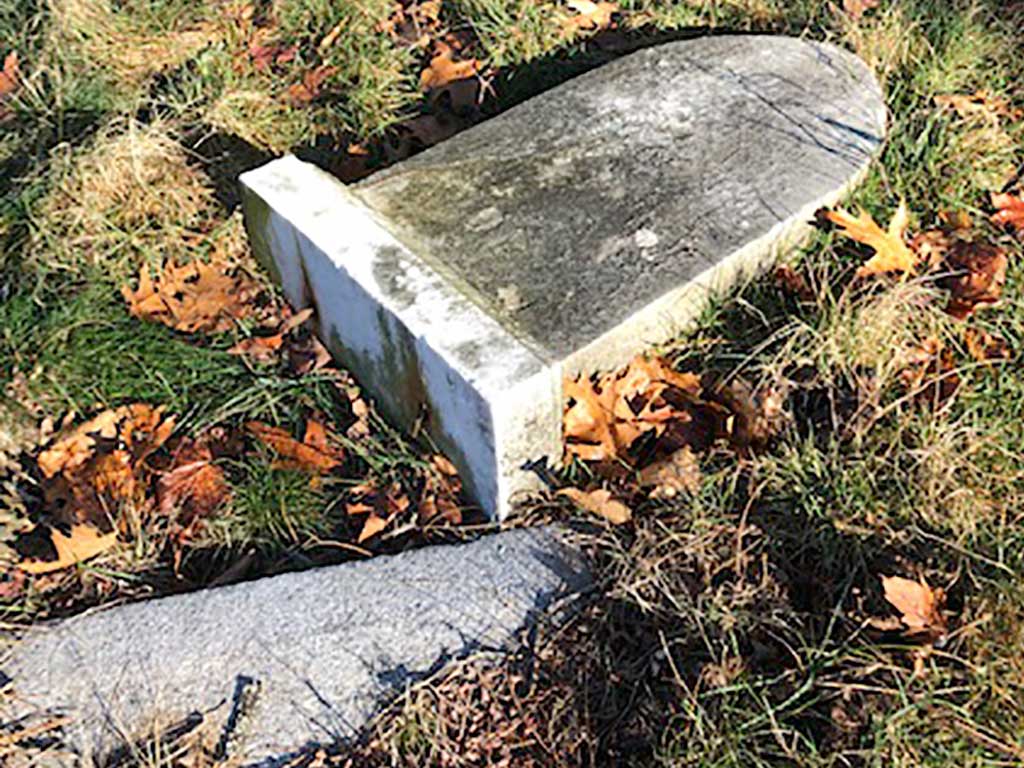WEST END PEOPLE
The Rise and Fall of the Pine Street Theatre
In the spring of 1988 the building on the corner of Pine and Brackett Streets, which is now Bonobo Pizza, almost became a theatre.

By Harlan Baker
The 1980s saw a growth in small professional or semi-professional theatre companies in Portland, Maine. In 1983 the Portland Stage Company moved out of the Temple Street parking garage and into the Odd Fellows Hall on Forest Avenue. It was converted to a 290-seat theatre with rehearsal and studio space.
In 1986 local actors founded The Mad Horse Theatre Company. They performed in the Theatre of Fantasy on Danforth Street. The Shoestring Puppet Theatre was in the Peoples Building on Bracket Street.
Into the midst of all this creative activity stepped Mark Manette, a native of Windham, Maine.
Mark Manette: Prolific Actor Enters the Theatre Scene
Manette was fresh from the theatre program at Bridgeport College. In 1986 he moved to Portland and founded a video production company called Port Star Productions. But Manette wanted to produce live theater.
In addition to producing and directing he was an actor. He appeared with the Children’s’ Theater of Maine, the Oceanside Player’s summer productions of “Romeo and Juliet,” and Eugene Lonesco’s Shakespearean spoof “Macbett” staged outdoors at Fort Williams park.
Manette’s acting was so prolific that he was appearing in two productions at the same time. In the afternoon he was Tybalt in “Romeo and Juliet.” His character was killed off in Act 3 Scene 1. A body double under a shroud replaced him for the final scene. Meanwhile he drove to Raymond, changing costume in the car, to appear in a Hank Beebe musical, arriving just in time for the curtain.
He staged his play “Yalata” as the initial theatrical offering for Port Star Productions in the Theatre of Fantasy on Danforth Street. But he wanted his own space.
Genesis of the Pine Street Theatre
“I was getting a business loan together for Port Star,” said Manette. “At that point I was looking for studio space that was larger.” In the fall of 1987, he leased space in the former Dudley Weed drug store on the corner of Pine and Brackett Streets and turned it into a rehearsal studio.
After shooting a short film in the space, he started thinking about turning the first floor into a small eighty seat theatre. There was also a basement, which gave him an idea.
“I wanted to have a trap door for use in a theatre,” said Manette. “I was in the space and there were a bunch of guys standing around.”
He pointed to a spot on the floor and said, “I’d like to have a hole right here.”
As if right on cue one of the guys took an ax to the floor.
“It was splintered,” said Manette. “It looked like the floor exploded. After that the landlord came by, saw the floor that way, and freaked out. But we cleaned it up.”
First Shows
The first major event Manette staged in the space was a Haunted House for Halloween, complete with the trap door that they used for the entrance to “Hell.” A red light was placed in the basement with actor Seth Berner as the Devil.
Manette planned to name the space The Pine Street Theatre. He became the executive director and Craig Foley, a recent graduate of USM’s Theatre program became the artistic director.
The floor plan drawn by Andre Kruppa included a box office, lighting booth seats, green room, and performance area which included the trap door.
The first theatre performance was a staged reading of David Mamet’s play about unscrupulous real estate agents, ”Glengarry Glen Ross.” The cast included Tony Owen, Randy Armando, and David LaGraffe. They performed on a Monday night, the traditional dark night for theaters, so actors appearing in other plays could attend.
Zoning Issues & Neighbors’ Concerns
Manette began planning a season for the new theater, after the zoning enforcement inspector told him that the space’s use as a theater conformed to the zoning.
But he received a letter from Warren Turner, the zoning enforcement inspector, stating otherwise. The letter also stated, “…due to the proximity of your business to the Reiche School, we must be certain that the proposed use is as you describe ‘Quality theatre’ and would not alter the character of the neighborhood.”
Manette wrote an appeal to the zoning board that included a floor plan of the proposed theatre. The plan showed the entrance to the theater at the corner door on Brackett and Pine streets, a box office, lighting booth, performance space, the trap door, and green room.
The hearing on his appeal was held on March 24th, 1988.
Manette collected letters of support. There were 160 signatures on a petition supporting use of the space as a theater.
But some neighbors were not convinced it was a good idea.
“A bunch of the neighbors didn’t’ like the idea of us putting a theater there,” said Manette.
Off street parking was a concern, but not the only concern. One woman who opposed the theater asked Manette point blank, “What kind of plays will be performed there?” Manette answered her with one word, “Shakespeare.” After an awkward silence, the meeting continued.
“People were concerned that if we didn’t make a go of it, it would be turned into a porn theater,” said Manette.
At that time both the State Theatre and Fine Arts Cinema were X-rated movie theatres. And two X-rated bookstores were close by.
The zoning board voted 6-0 to deny Port Star Productions a variance.
Moving on…
Manette and his artistic director Craig Foley were extremely disappointed. They had to leave the space because Port Star Productions couldn’t afford the $1000 per month rent. To make matters worse his video equipment was stolen from the Pine Street location.

Manette moved to a location near the Maine Mall and continued to work on videos, after receiving insurance money for the stolen equipment.
He moved away from Portland in 1993.
Today he is a professor and director of theater at Newman University in Wichita, Kansas, where he has directed Shakespeare’s “Midsummer Night’s Dream.”
He would love to come back to Maine. “I’m a New England guy,” he said. “But this is where the job is.”
Thanks, and a tip of my hat, to the zoning staff of the City of Portland for providing me with a 33-year-old document.
Harlan Baker is an adjunct lecturer at USM and an actor.





